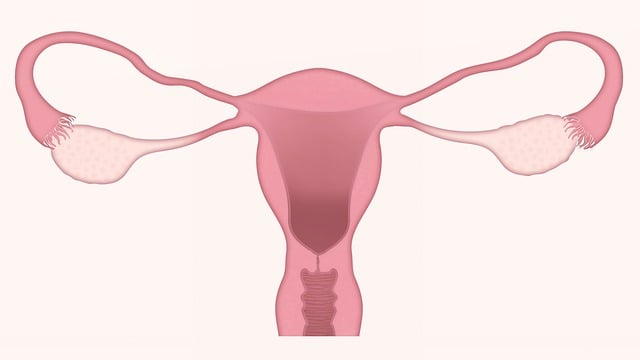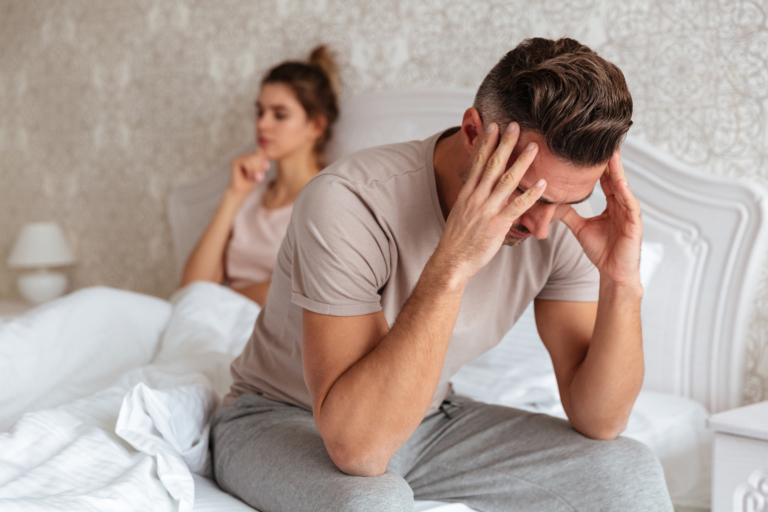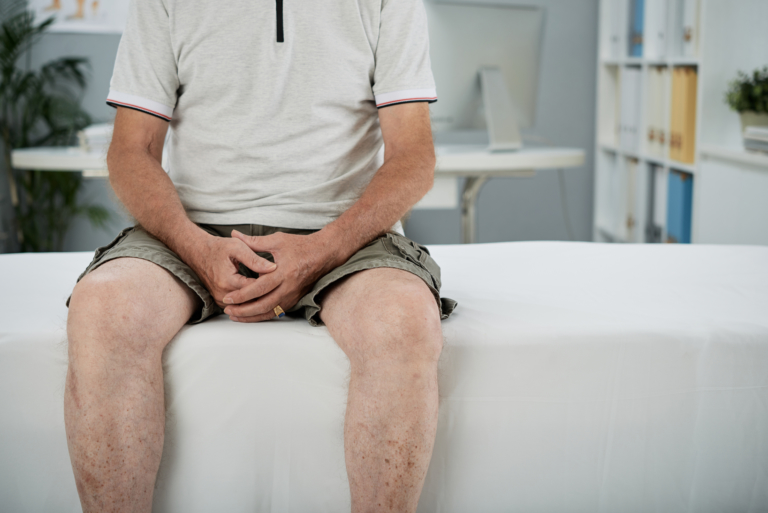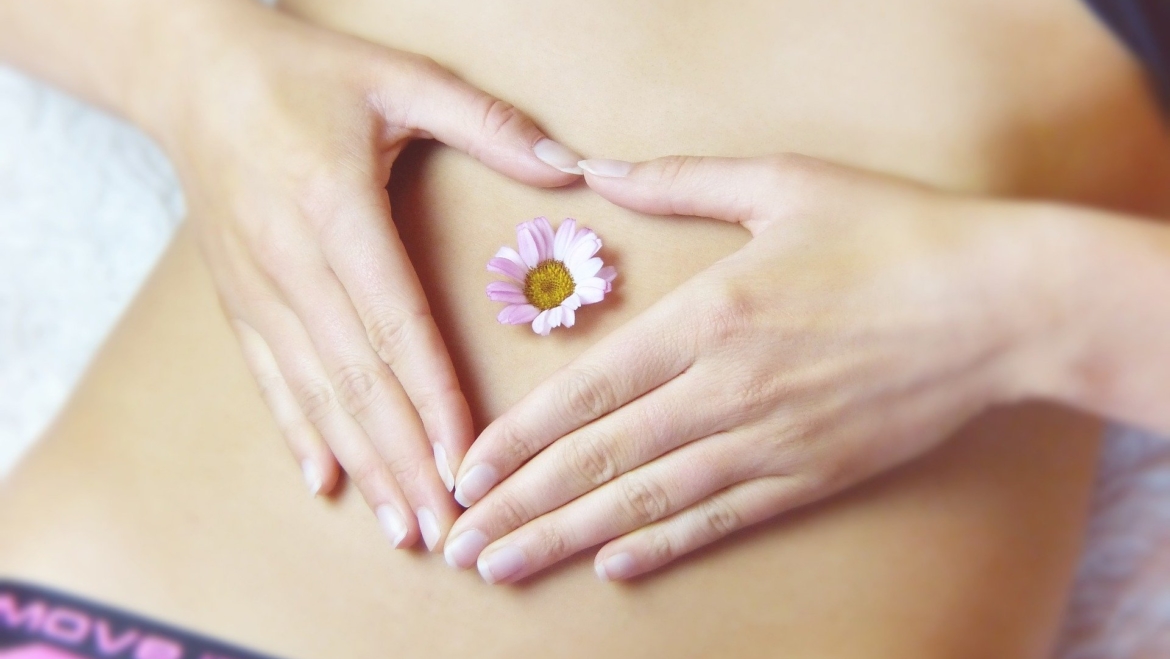Vaginismus: Causes, Symptoms and Treatment
Vaginismus is characterized as a disease/trauma that does not allow your body to accept vaginal penetration, making it difficult to dilate the canal, caused even by stress levels, nervousness, trauma, emotional blocks and among other factors.
Read more: What’s a Tantra Massage?
What are the main symptoms and characteristics of vaginismus?
The symptoms of vaginismus, whether they are infrequent or high, are characterized by the following signs:
Feel pain in sexual intercourse with penetration, whether it is little or a lot of pain
Frequent pain during sexual intercourse is one of the main symptoms of vaginismus, especially when this pain brings great discomfort to the woman, it may be that this pain is caused by lack of lubrication, so it is important that a gynecological evaluation is carried out.
Feeling a burning sensation during or after intercourse
It is very common for women who have vaginismus to feel burning in their genitals after sexual intercourse, so one of the important points is to urinate after intercourse and seek medical help for the diagnosis.
In addition to the burning being one of the main characteristics of vaginismus, the burning during and after sexual intercourse can be related to other sexually transmitted infections.
Peaks or frequency of low self-esteem
It is very common that women who have vaginismus also suffer from hormonal intensity and peaks of low self-esteem and dissatisfaction with appearance/weight or even feeling embarrassed about the vaginal appearance.
Anxiety
Anxiety attacks are also, unfortunately, very present in the symptoms of vaginismus, this is because the fear of having sex and it hurts or even a possible pregnancy occurs, which obviously causes pre-sex tension.
Vaginal contraction without any stimulation
Feeling the involuntary contraction of your vagina, without you having stimulated it, is one of the most present characteristics of vaginismus, so be aware especially if pain/discomfort without penetration and involuntary contractions arise.
Difficulty using tampon/vibrators or menstrual cups
If you have difficulty using tampons and even using vibrators, it is one of the apparent signs of vaginismus, stay tuned.
Pain during touch exams or masturbation
Pain and even great discomfort during gynecological exams or even in masturbation itself, is also a very apparent and worrying feature of vaginismus.
Discover the 7 possible causes of vaginismus!
The possible causes for vaginismus are linked to some traumas/fears or even insecurities, whether they are because of your body/shyness or shame of your partner, and among them:
1 - Fear of pain from intimate contact
Vaginismus can also occur over fear of intimate contact and even pressure about sex being painful and even being considered awkward.
2 - Fear of getting pregnant
The fear of becoming pregnant is directly linked to vaginismus, precisely because women are afraid of penetration, thinking about the consequence that may be generated, causing an emotional block at the time of penetration and the decrease in libido, if this happens, try to relax.
3 - Anxiety and stress
As well as the fear of getting pregnant, generalized anxiety and a high tension of stress can trigger and provide vaginismus, in cases like this try to relax and let it flow, if you feel comfortable.
4 - Sexual abuse or witnessing sexual violence
Having been a victim of sexual violence, having experienced some trauma about relationships, or even having experienced uncomfortable situations during sex, bring this discomfort during the relationship. It is important to know how to respect and know your own limits.
5 - Unbalanced religious education
There are some beliefs behind religion that trigger taboos and prejudices about sex, especially how you will be seen by others and how it will hurt you in the future. It is important to feel good and to be free from thoughts of judgments and beliefs during these times.
6 - Diseases such as urinary tract infection, endometriosis, pelvic tumors
Gynecological inflammatory diseases or even other health problems such as endometriosis, pelvic tumors and others are also one of the following causes of vaginismus.
7 - Birth-related trauma and neonatal loss
Obstetric violence, difficult pregnancy and even some problems related to childbirth, trigger and surface traumas related to sexuality and knowledge of their own body.
Among other problems, some causes of vaginismus are also directly linked to:
- Menopause
- Hemorrhoids
- Vaginal malformations such as the vaginal septum
What treatments to treat vaginismus should not do?
Tantra massage
Relief from penetration pain in vaginismus; among other benefits.
Although some people believe that tantric massage is an erotic massage, and even in many places it is sold that way, in fact it is much more than just that.
In addition to the search for sex and pleasure, this style of massage seeks greater circulation of vital energy in the chakras through touch.
And so, it assists in the healing process, physical and mental, as well as impacting the process of self-knowledge. And that’s because just like in a therapeutic session, the touches of tantric massage can serve to reveal different aspects of your life and help you to have more clarity about your decision-making.
Pompoir without medical recommendation
The pompoir as a treatment for vaginismus has become very frequent, in addition to being a good exercise to spice up the relationship, it also strengthens the pelvic floor muscles both female and male.
This practice of pompoir is known as intimate gymnastics, this set of exercises work the sexual energy and strengthen the muscles through contraction, because we try to strengthen the muscles, this category of exercise is not indicated to develop the muscles and elasticity of the vagina.
So discard pompoir and pelvic muscle exercises without the gynecologist’s prescription.
medical follow-up
Treatment for vaginismus must be done according to the cause and may include the use of anti-anxiety medication, anesthetics in the form of an ointment, in addition to the use of vaginal vasodilators.
The treatment of vaginismus should be guided by a gynecologist and the help of a physical therapist specializing in women’s health contributes to better results. Psychological counseling, with cognitive and behavioral psychotherapy techniques can facilitate, accelerate the process and reduce anxiety and is therefore also indicated.
What to do when having vaginismus in sexual intercourse?
Use vaginal dilators
Vaginal dilators are the best for those who suffer from vaginismus, mainly because it is an object conducive to this type of problem, providing all the safety features for those who use it, along with satisfaction.
Do not exceed your limits
In no way, even following all the precepts and conditions prescribed by your gynecologist, go beyond your limits, when starting the relationship, dilate the area a little, feel safe and respect your body.
Bet on lots of lubrication
Yes, use and abuse lubricants, they will be one of the greatest allies for your comfort during sex, always look for lubricants to be water-based.
See a good gynecologist as soon as symptoms persist and become apparent, especially if they are recurrent and strong discomforts during pain during sexual intercourse.
Book an appointment with me
keep update
connect with me
read more!

Yoni egg is a polished egg-shaped stone or crystal that used for pelvic floor exercises inside the Yoni. Yoni in Sanskrit mean womb, receptacle, origin or source; root cause of

Many people who look for my work are energetically exhausted and somehow cannot find a way out, they are people with emotional problems, traumas, depression, anxiety, existential crises, people who

Vaginismus is the body’s automatic reaction to the fear of some or all types of vaginal penetration Involuntary contraction of the muscles in the pelvic and vaginal region causes pain and

Premature ejaculation indicates the loss of voluntary control of the ejaculatory reflex. Some experts define premature ejaculation as ejaculation that occurs less than 2 minutes after penetration or in less

Low libido can come from several external and internal factors, being caused by stress, anxiety, use of medications such as antidepressants or antihypertensives, relationship problems, sex without orgasm, emotional problems,

With premature ejaculation, erectile dysfunction (also called “sexual impotence”) is the most common cause of complaints from men seeking authentic tantric massage. Erectile Dysfunction is the inability to get or


